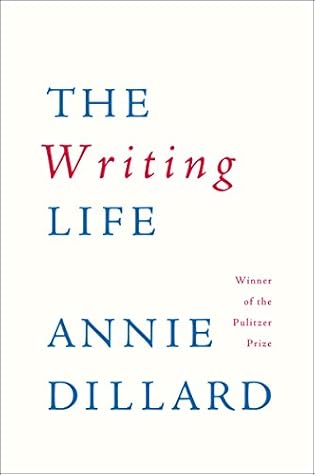More on this book
Community
Kindle Notes & Highlights
How many books do we read from which the writer lacked courage to tie off the umbilical cord? How many gifts do we open from which the writer neglected to remove the price tag? Is it pertinent, is it courteous, for us to learn what it cost the writer personally?
There is no call to take human extremes as norms.
The feeling that the work is magnificent, and the feeling that it is abominable, are both mosquitoes to be repelled, ignored, or killed, but not indulged.
Appealing workplaces are to be avoided. One wants a room with no view, so imagination can meet memory in the dark.
How we spend our days is, of course, how we spend our lives. What we do with this hour, and that one, is what we are doing.
There is no shortage of good days. It is good lives that are hard to come by. A life of good days lived in the senses is not enough. The life of sensation is the life of greed; it requires more and more. The life of the spirit requires less and less; time is ample and its passage sweet. Who would call a day spent reading a good day? But a life spent reading—that is a good life.
I do not so much write a book as sit up with it, as with a dying friend. During visiting hours, I enter its room with dread and sympathy for its many disorders. I hold its hand and hope it will get better.
Write as if you were dying. At the same time, assume you write for an audience consisting solely of terminal patients. That is, after all, the case. What would you begin writing if you knew you would die soon? What could you say to a dying person that would not enrage by its triviality?
The writer studies literature, not the world. He lives in the world; he cannot miss it. If he has ever bought a hamburger, or taken a commercial airplane flight, he spares his readers a report of his experience. He is careful of what he reads, for that is what he will write. He is careful of what he learns, because that is what he will know.
Why are we reading, if not in hope of beauty laid bare, life heightened and its deepest mystery probed?
Push it. Examine all things intensely and relentlessly. Probe and search each object in a piece of art. Do not leave it, do not course over it, as if it were understood, but instead follow it down until you see it in the mystery of its own specificity and strength.
One of the few things I know about writing is this: spend it all, shoot it, play it, lose it, all, right away, every time. Do not hoard what seems good for a later place in the book, or for another book; give it, give it all, give it now. The impulse to save something good for a better place later is the signal to spend it now. Something more will arise for later, something better. These
Nothing on earth is more gladdening than knowing we must roll up our sleeves and move back the boundaries of the humanly possible once more.


